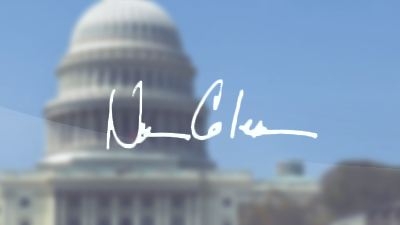Notes from Norm: An American President Goes to Hiroshima
The waning days of a President’s term of office are usually focused on creating a legacy. Since the beginning of the modern day Presidency we’ve been treated to Republican and Democrat occupants of the White House seeking to burnish their reputation before they face exile from the Oval Office.
Whether the exile was imposed upon them by the voters or constitutional limits on the number of terms they can serve, American Presidents rarely leave office without trying to put a permanent stamp on their Administration’s reputation.
Barack Obama is no exception to this historical pattern of soon-to-be former Presidents.
How Barack Obama is judged by history remains to be seen. How his policies and his view of the future of American society and its place in the world will be discussed and debated for decades after he has left office.
He is an historical figure in American life that will remain forever present and with us and future generations of Americans and our nation’s history.
Despite his obvious penchant for feathering his own historical reputation there is a decision by this President which I do believe has an opportunity for significant positive and lasting impact on today’s generation of Americans, as well as future generations of Americans.
The President’s announcement that he will be the first sitting American President to visit Hiroshima, Japan is not just history making, it is history shattering.
America is the only nation in history to use an atomic bomb. Not once but twice. The decision by President Harry Truman to drop an atomic bomb on Nagasaki and Hiroshima in the Pacific War Theater of World War II firmly and mercilessly ended the war with Japan.
Since those fateful days Truman’s decision has been debated. The question of whether he opened a Nuclear Pandora’s Box – or indeed, nailed it shut – has long receded from day-to-day discussion and conversation in America.
For millions of Americans at that time Truman’s decision didn’t just end a war, but signaled that American troops would soon be coming home. To be back in America. With their families. And, that American treasure and blood would no longer be shed on the shores of volcanic islands nobody knew even existed.
It is in the context of that terrible time Truman’s decision must be weighed and evaluated. To be sure, it is the duty of future generations to never forget the carnage that the use of atomic weapons had on millions of Japanese people.
Which is why President Obama’s decision to go to Hiroshima is a valuable opportunity for current and future generations of Americans to be reminded of the high cost of war. And, more importantly, the massive cost to humanity if nuclear weapons are ever used again by warring nations – or, more frighteningly, terrorists and terror organizations.
Against a back-drop of saber rattling by an unstable nuclear endowed North Korean Dictator Kim Jong-un and the nuclear proliferation in the Gulf States by President Obama’s enabling of Iran’s own nuclear weapons expansion, his decision to go to Hiroshima can serve an important purpose and mission.
As long as this isn’t another leg of the Obama Apology Tour, then his decision is to be applauded.
America need not apologize for its efforts to save the world for democracy from tyrants and despots during World War II.
America had decisions to make to end the war. Choices had to be made.
Before him was a proposal called Operation Downfall that called for a full-scale invasion of Japan resulting in millions of American and Japanese casualties.
Or, he could make what he believed to be a more definitive choice that would end the war and cost far fewer lives to do so.
President Harry Truman made a choice that saved American lives and ended the war.
Today, according to recent polling, nearly 60% of Americans still believe that the use of atomic weapons in Japan were justified.
President Obama’s trip has significant potential benefits for America, Japan and the world.
There is, of course, the nature of the vital bond that Japan and the United States have formed as allies today despite their status as warring enemies more than 70 years ago. A bond that, in the midst of an emerging and increasingly belligerent China, is as valuable and vital to America and her interests as that of our relationships with Great Britain, Israel and other democratic nations.
Those relationships strike at the core of what America’s role in the world has been, and must continue to be, since the end of World War II and, equally important, since the end of the Cold War.
War is a terrible way to solve conflicts between nations. The loss of lives, potential and resources of a nation are drained away and never to return.
And, nuclear war – or the use of nuclear weapons – in this day and age – is not the destruction of a single Hiroshima or Nagasaki.
It is an entire nation. Of the world.
Seventy one years ago there were barely a handful of nuclear bombs. They were, by today’s standards, primitive bombs. Their destructive capacity, while immense and mind-numbing were limited by the technology of the times.
Nine countries today possess more than 15,000 nuclear weapons.
Today’s nuclear weapons have the destructive capability that makes those era’s bombs look like firecrackers.
It isn’t necessary for nine nations to detonate 15,000 nuclear weapons to destroy the world.
It just takes one.
And, it just takes one terrorist to set the world ablaze.
More than seventy years ago the world became a different place. One war ended. But, others followed.
And for generations of Americans and others throughout the world, we lived under an umbrella of fear that the world’s two Superpowers may one day accidentally, or deliberately, engage in a nuclear war.
That a nuclear weapon was never fired during the Cold War is a testament to the belief that there would be no winner in a conflict involving atomic bombs.
President Harry Truman unleashed the awful power of nuclear weapons in the belief that he could end a war and the continued slaughter of humanity.
But, that was then. This is now. We live a different, more dangerous and unpredictable world.
Seventy years later, President Barack Obama has an historic opportunity and a moral obligation to make it clear that if a nuclear weapon is ever used to start a war the only end to the war will be the end of humanity.


